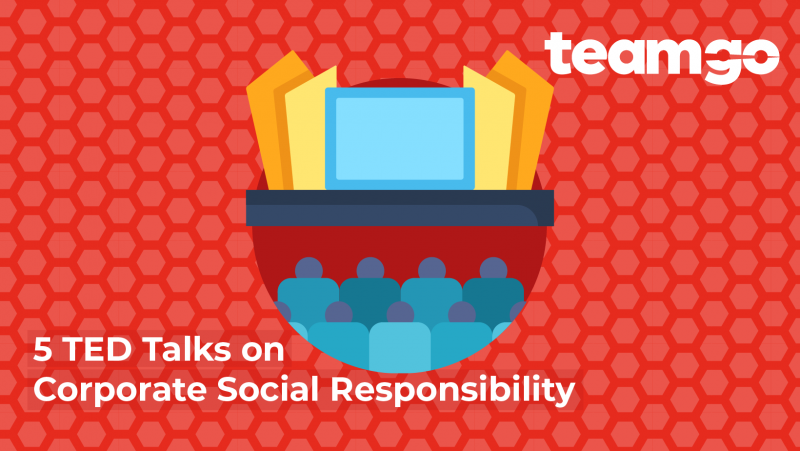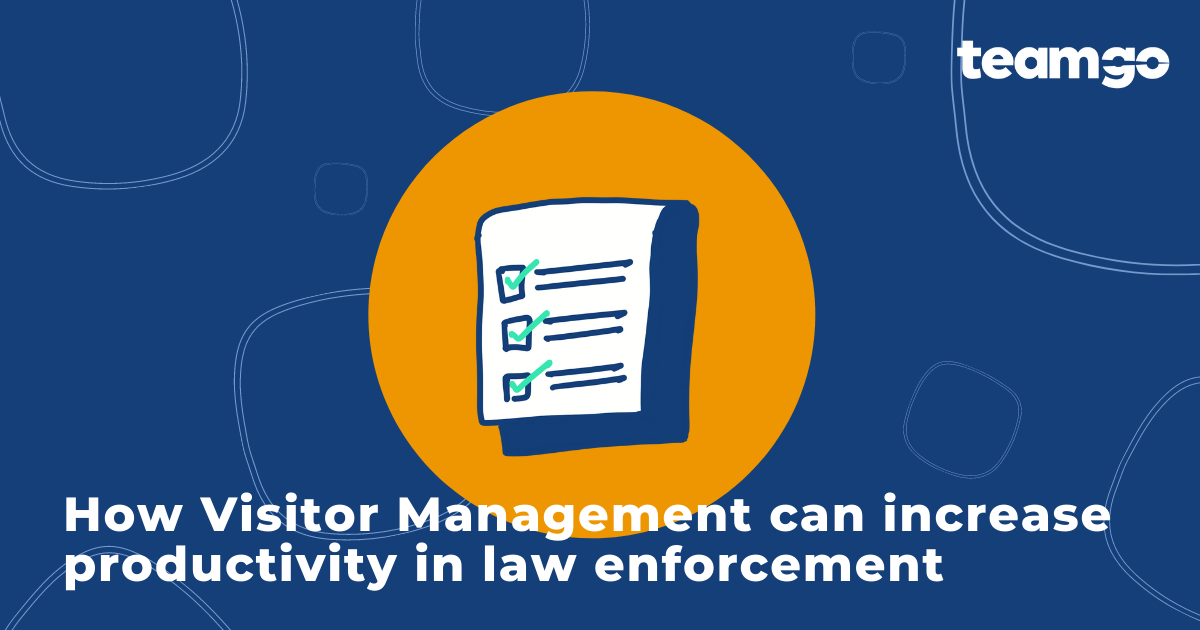The phenomenon of globalization gave rise to gigantic multinational companies. And as these companies grew, so did their detrimental impact on the world. This is what Barie Carmichael and James Rubin, authors of “Reset: Business and Society in The New Social Landscape” call the “inherent negatives”, or the “given” of doing business in large scale.
But this is a new era. The democratization of information has given consumers the power to demand transparency from the businesses they interact with and hold them accountable for their actions. People’s values have changed and their focus has shifted. Consumers now care less about products and services themselves, and more about the company behind them, their actions and how those goods are produced. This is why companies should invest in Corporate Social Responsibility.
Today we’re going to show you 5 TED Talks about how companies can and have assimilated Corporate Social Responsibility into their business models to operate ethically.
We’ll also sprinkle some valuable information on what Corporate Social Responsibility is and how it’s changing the way we do business.
So tune in:
1. TED Talk: How to make a profit while making a difference by Audrey Choi
Audrey Choi is the Chief Marketing Officer and Chief Sustainability Officer at investment bank Morgan Stanley. At Morgan Stanley, she works on promoting sustainability in the capital markets by focusing on investment that promotes positive change.
Fun fact: she was Chief of Staff to the former Vice President of the United States Al Gore.
Here, Audrey talks about how people and companies can make Sustainable Investment the new normal. She points out the benefits of doing so by citing a Harvard Business School research which found that if you had invested one dollar 20 years ago in a portfolio of sustainable companies, your dollar would’ve grown to $28,36 dollars. That is nearly twice as much as if you had invested in a portfolio of non-sustainable companies.
Professional opinions are also with her. After polling a thousand investors, she discovered that 71% of people were interested in sustainable investment. She also found out that 72% of them thought that companies that invest in sustainable investment do better financially than those that don’t. But still, even though sustainable investing is the fastest growing sector in the investment industry, people find it hard to put their money where their mouth is.
Just to be clear:
Corporate Social Responsibility says that businesses do not exist for the sole purpose of making a profit anymore. That they not only have a duty to their shareholders but to all of their stakeholders. That includes employees, suppliers, consumers, the environment and society as a whole.
2. TED Talk: Why good leaders make you feel safe by Simon Sinek
Simon Sinek is a motivational speaker, organisational consultant in the field of company culture and author of five best-selling books. His goal in life is to help people wake up every single day feeling inspired, safe at work, and fulfilled.
In his TED Talk, Simon talks about a US military episode, where a 106-men column was ambushed by enemies in Afghanistan. Several men were wounded in the event, so Captain William Swenson ventured into the live fire to rescue them. Air support came and after pulling wounded Seargent Kenneth Westbrook into a helicopter, Swenson is seen giving his comrade a kiss on the forehead to make him feel safer.
Simon carries on about how in the military, leaders who are willing to sacrifice themselves so that others may gain are given medals. But in business, leaders who sacrifice others so that they may gain are given bonuses. And that violates the very concept of leadership.
Simon’s talk is how leaders have the responsibility to foster safety among their staff, and not fear. It is about building trust and cooperation, which forms great teams. It is about putting the people in the organisation first and the profits second. It is ultimately about the company’s duty (through upper management) to its employees.
Here’s why this matters:
People’s values shift not only has a huge impact on consumer behaviour and brand image but also on the kind of workers that companies attract. It is known that Millennials would rather work for a purpose rather than just having a job as a means to earn a living. They are increasingly becoming more involved with philanthropic activities and look for companies that do the same.
3. TED Talk: Your company’s data could help end world hunger by Mallory Freeman
Mallory Freeman is a Lead Data Scientist at UPS’s Advanced Technology Group. During her PhD in Industrial Engineering, she worked with the UN exploring how to measure and improve the logistics of humanitarian operations by drawing valuable insights from data with the help of algorithms. In her TED Talk, Mallory delves into data philanthropy, an uncommon expression of Corporate Social Responsibility, but that can have a gigantic impact in solving the world’s biggest social issues.
Here’s a real-life example of data philanthropy:
A telecommunication company donated cellphone signal location data in the Ivory Coast. With that data, decision scientists were able to map where people were travelling, which helped predict where malaria might’ve been spreading. That’s data used to improve humanitarian operations.
However, gathering and analyzing that data is not that simple. For that, we need the help of companies. Companies have the most potential to help to fix problems like world hunger, but for that, they need to do three things:
- Donate their data
- Donate decision (data) scientists
- And donate technology
But why should companies get involved? Firstly, it’s great PR. Secondly, it’s a 24 billion dollar industry. And thirdly, companies can draw valuable insights from that data for their own use. And if donations are spread over a long period of time, there’s very little impact on the organisation.
Here are some stats that Carmichael and Rubin found in their research about Corporate Social Responsibility:
– 71 per cent of people have higher expectations about companies now.
– 68 per cent of people think how a company operates is more important than what they sell.
– 94 per cent of people believe companies have the power to shape a better society.
– 87 per cent said most companies exist to create value for multiple interests in society, rather than just profit.
– 75 per cent said they converted their opinions of a company into action.
4. TED Talk: Profit’s not always the point by Harish Manwani
Harish Manwani is the former Chief Operating Officer of Unilever. He now serves as the Senior Operating Partner at Blackstone and a director of Whirlpool, Qualcomm, Gilead Sciences and Tata Sons among other companies.
In his TED Talk, Harish talks about the 3 Gs of growth that most companies reign through. They comprise consistent growth, competitive growth and profitable growth. However, companies should be moving toward a 4G model instead. One that includes responsible growth by creating social value instead of economic value.
He goes on to reminisce about his first day working at Unilever when his boss asked him “Do you know why you’re here?” and he said, “I’m here to sell a lot of soap.” To what his boss answered “No. You are here to change lives”. He then gives examples of times when Unilever operated through their values and purpose to serve the community that sustains the company. He says that companies cannot afford to be standbyers anymore and must follow that example.
To sum up:
Companies’ responsibility now spreads across three spheres: economic, social and environmental. And the way to address these responsibilities is by taking action within these spheres to offset the “inherent negatives” of business. It’s all about building an ethical and sustainable company.
5. TED Talk: Making global labour fair by Auret van Heerden
Auret van Heerden is a labour rights activist and the president and CEO of the Fair Labor Association (FLA), an organisation that brings together NGOs, the private sector and universities to guarantee and maintain international labour standards in global supply chains.
In his TED Talk, Auret talks about how several raw materials used to make modern everyday items come from developing countries, where labour is poorly regulated, people are enslaved or work in unhealthy environments. That is because deregulation is seen as the best way to attract investment and promote trade in these countries, which is a huge dilemma.
No one wants to be a tool of human rights abuse in the global supply chain. But because supply chains are global, there is a jurisdictional problem for governments to audit them. Additionally, many companies have no way of reassuring us that their supply chains are ethical.
He talks about how he founded FLA to address that by encouraging multinational organisations to adhere to labour standards. After adhering, these companies get audited by FLA and all the information is made available on their website. He shows how organisations can apply Corporate Social Responsibility to end modern slavery by having a code of conduct that applies to every part of its supply chain.
Also:
Thanks to pressure from consumers, the investor community has started to advocate the business benefits of transparent supply chains. They have finally realised that ethical supply chains not only have a positive impact on the environment and the people involved in it but that it also promotes the long-term viability of businesses. Here’s how businesses can benefit:
– “Minimize business disruption from environmental, social, and economic impacts, such as climate change or suppliers’ deficient human rights, labour, environmental, or governance practices.
– Maximizing efficiencies in the supply chain can reduce a company’s supply costs and its environmental footprint.
– Collaborating with suppliers on sustainability issues can result in more innovative products.”
To sum it up:
Corporate Social Responsibility is beneficial for people, the environment and companies. There are several ways in which companies can practice Corporate Social Responsibility such as:
– Investing in sustainable/ethical businesses
– Donating data, technology and data scientists
– Fostering a safe environment for employees
– Incorporating the 4th G (responsible growth) through your company’s activities
– Adhering to labour standards in global supply chains
How about you?
What is your company doing to offset its “inherent negatives”?
Or what would you like to implement in the coming future?
Let me know by tweeting at us.






